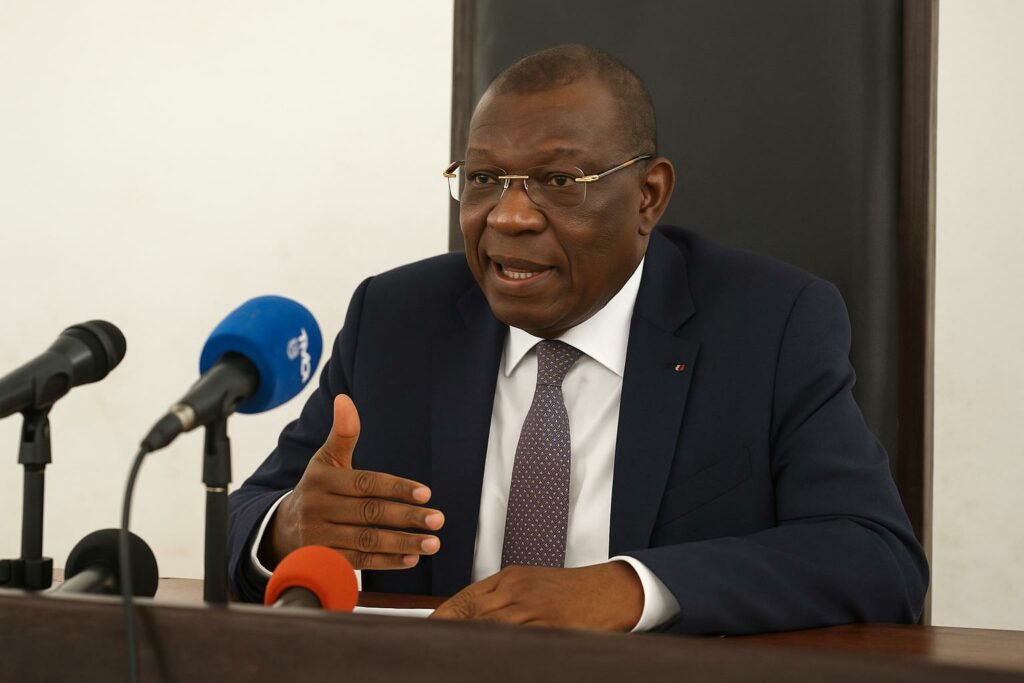An Unprecedented Attack Reverberates Through the Bench
Few images strike the legal conscience of a nation as forcefully as the charred remains of an official vehicle parked within a courthouse compound. That is precisely the tableau that confronted magistrates and litigants on 31 October in Pointe-Noire, after unknown individuals set fire to the car of Attorney General Clément Makita, attached to the city’s Court of Appeal. The assault, reportedly committed by a disgruntled litigant who had prevailed in a civil dispute yet struggled to execute the judgment, has jolted the Congolese judicial community and sparked a debate on the safety of those who personify the state’s authority to adjudicate.
Within hours, Supreme Court President Henri Bouka travelled from Brazzaville to the Atlantic economic hub to denounce what he termed a “cowardly and shameful aggression.” Standing before colleagues visibly shaken by the attack, he insisted that magistrates “will always remain standing,” a phrase that resonated beyond the courthouse walls and into national discourse.
Tracing the Motive Behind the Flames
According to preliminary accounts obtained from judicial sources, the prime suspect is a private citizen who, despite winning a lawsuit against a local company, has encountered delays in the enforcement stage—a recurrent procedural bottleneck in many jurisdictions. Frustration, investigators believe, metastasised into violence aimed at pressuring judges into accelerating the debtor’s compliance. In a disturbing extension of that logic, the same individual allegedly attempted to ignite the vehicle of appellate counsellor Mme Pemba earlier in the evening.
For senior magistrates, the episode underscores the precarious balance between litigants’ expectations and the structural constraints of case execution. Legal anthropologist Dr Michel Ngouabi observes that complexity: “The enforcement of judgments often proves more arduous than obtaining them. When frustration erupts into violence, the entire edifice of the rule of law is put at risk.”
Legal Consequences: Exemplary Sanctions on the Horizon
Henri Bouka reminded observers that Congolese criminal law provides for immediate presentation before the competent jurisdiction whenever a flagrant offence threatens public order. Should arson against state property and intimidation of a magistrate be proven, the defendant may face a heavy custodial sentence as well as civil damages. “The penalty must be exemplary, dissuasive for all,” Bouka asserted, invoking the doctrinal rationale that punishment is not only retributive but also preventative.
Practitioners note that articles dealing with attacks on public officials carry enhanced penalties because the offence transcends the individual and strikes at an institution. Veteran barrister Serge Ibara emphasises that “the complainants will include the state itself, represented by the public prosecutor, since the judiciary’s integrity constitutes a collective interest.”
Institutional Solidarity and Governmental Reassurance
In the immediate aftermath, the Supreme Court’s delegation offered moral support to the targeted magistrates and assured them that “the highest judicial authorities will not remain indifferent to threats against life or physical integrity.” While the investigation remains under the remit of the Pointe-Noire public prosecutor, ministerial sources indicate that the Ministry of Justice is monitoring developments closely and stands ready to allocate security resources where necessary.
Crucially, Bouka reiterated that magistrates themselves remain subject to the law: “A judge is not a citizen above the statutes,” he said, thereby underscoring the twin principles of accountability and independence that anchor the country’s constitutional framework. Analysts regard this nuance as essential in preventing the narrative from slipping into corporatism and in maintaining public trust in the judiciary.
Safeguarding the Rule of Law Amid Public Expectation
Beyond its immediate shock value, the Pointe-Noire incident invites reflection on broader questions of judicial protection in Congo-Brazzaville. The demand for expeditious, enforceable justice is rising in parallel with an increasingly assertive citizenry aware of its rights. Meeting that demand, experts suggest, requires both procedural reforms—such as strengthened bailiff services and clearer enforcement timelines—and tangible security provisions for court officers.
For now, the judiciary’s leadership has chosen a posture of firmness, communicating that no act of intimidation will deter magistrates from fulfilling their constitutional mission. Whether the forthcoming trial will indeed deliver the “exemplary” character promised by Bouka will be closely watched by lawyers, business circles and international partners who view a stable legal climate as a cornerstone of the national development agenda.
The arsonist’s flames may have fizzled out within minutes, but their reverberations continue to illuminate the stakes of judicial independence in Congo-Brazzaville. As the investigation progresses, the country confronts a critical test: upholding the authority of the courts without sacrificing the transparency and fairness upon which enduring legitimacy rests.

